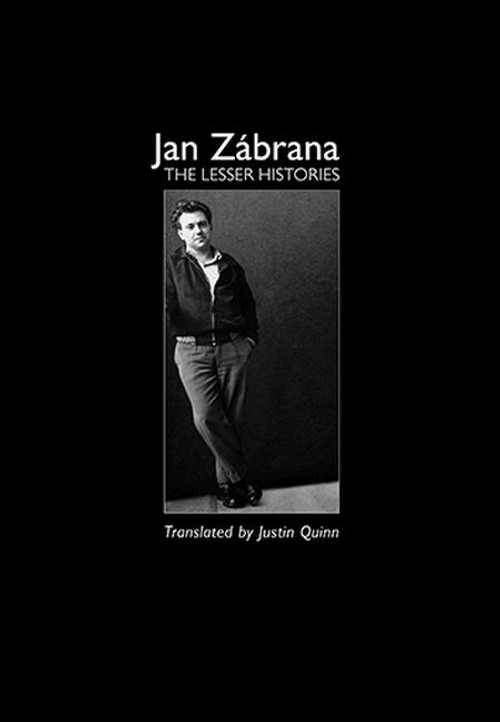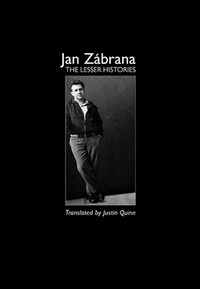
- Úvod
- Novinky
-
Odporúčania
- Všetky Všetky
- Výber kníh o vysťahovalectve a prisťahovalectve Výber kníh o vysťahovalectve a prisťahovalectve
- Februárový kultúrny program na Kozej Februárový kultúrny program na Kozej
- Výber knih o Grónsku a z Grónska Výber knih o Grónsku a z Grónska
- SCANDI 2026 - výber severskej literatúry SCANDI 2026 - výber severskej literatúry
- Najpredávanejšie knihy v roku 2025 Najpredávanejšie knihy v roku 2025
- Knihy, ktoré sme čítali v roku 2025 Knihy, ktoré sme čítali v roku 2025
- Výber detektívok a trilerov Výber detektívok a trilerov
- Výber kníh o hudbe Výber kníh o hudbe
- Výber poézie Výber poézie
- Knihy pre tínedžerov 14+ Knihy pre tínedžerov 14+
- Príbehy pre realistov 9+ Príbehy pre realistov 9+
- Fantastické knihy pre deti 9+ Fantastické knihy pre deti 9+
- Príbehy na prvé čítanie Príbehy na prvé čítanie
- Encyklopédie pre deti aj celú rodinu Encyklopédie pre deti aj celú rodinu
- Výber kníh z vydavateľstva Artforum Výber kníh z vydavateľstva Artforum
- Výber feel-good kníh Výber feel-good kníh
- Výber hrubých kníh, ktoré stoja za svalovicu Výber hrubých kníh, ktoré stoja za svalovicu
- Vedecké pecky roka 2025 Vedecké pecky roka 2025
- Výber kníh pre deti predškolské Výber kníh pre deti predškolské
- Výber slovenskej beletrie Výber slovenskej beletrie
- Výber svetovej beletrie Výber svetovej beletrie
- Vzácne počiny slovenských (ne)vydavateľstiev Vzácne počiny slovenských (ne)vydavateľstiev
- Výber kníh o duši Výber kníh o duši
- Výber kníh o spoločnosti Výber kníh o spoločnosti
- Novembrový kultúrny program na Kozej Novembrový kultúrny program na Kozej
- Výber kníh o histórii Výber kníh o histórii
- Výber českej beletrie Výber českej beletrie
- Malinké knižky Malinké knižky
- Výber maďarskej beletrie Výber maďarskej beletrie
- Výber kníh slovenských autoriek 2025 Výber kníh slovenských autoriek 2025
- Výber kníh z vydavateľstiev Utopia libri, Alarm, KPTL, Neklid, Nevim Výber kníh z vydavateľstiev Utopia libri, Alarm, KPTL, Neklid, Nevim
- Výber kníh o kríze bývania Výber kníh o kríze bývania
- Výber z najpredávanejších kníh v roku 2025 Výber z najpredávanejších kníh v roku 2025
- Desiatka Anasoft litera 2025 Desiatka Anasoft litera 2025
- Odpor a vzdor Odpor a vzdor
- Rebrík
-
Knihy
- Beletria Beletria
- Knihy pre deti Knihy pre deti
- Reportáže Reportáže
- História História
- Umenie Umenie
- Spoločenské vedy Spoločenské vedy
- Náboženstvo a teológia Náboženstvo a teológia
- Prírodné vedy Prírodné vedy
- Životný štýl a zdravie Životný štýl a zdravie
- Predpredaj Predpredaj
- Všetky Všetky
-
Books
- Fiction Fiction
- Children's books Children's books
- Non-fiction Non-fiction
- Arts Arts
- All All
-
E-knihy
- Beletria Beletria
- Knihy pre deti Knihy pre deti
- Reportáže Reportáže
- História História
- Umenie Umenie
- Spoločenské vedy Spoločenské vedy
- Náboženstvo a teológia Náboženstvo a teológia
- Prírodné vedy Prírodné vedy
- Životný štýl a zdravie Životný štýl a zdravie
- Všetky Všetky
-
Ostatné
- Audioknihy Audioknihy
- Hudba Hudba
- Filmy Filmy
- Moleskine Moleskine
- Časopisy Časopisy
- Merchandise Merchandise
- Diáre a zápisníky Diáre a zápisníky
- Darovacie karty
His parents were imprisoned, their health broken, and he was not allowed to study languages in college.Refusing both to rebel outright or to cave in, he thought of himself as a dead man walking. “To all those who keep asking me to do things for them, I sometimes feel like saying: ‘But I’m dead. I died long ago. Why do you keep treating me as if I were one of the living?’” Yet during some of Europe’s most difficult years, he wrote The Lesser Histories, a collection of sixty-four sonnets that range through themes of age, sex, and political repression—a radiant testament to his times. The lines are emptied both of personal pathos and political stridency. Often Zábrana’s own voice segues into those of poets he had translated over the years, leaving only a bare shimmer of subjectivity—humorous, oblique, pained—with which to view his own works and days. The poems document a splendid and bitter isolation, and are immersed in the humor, hatreds, and loves of the everyday. Published in Czech in the ill-fated year of 1968, they subsequently fell into neglect. After the fall of Communism in 1989, Zábrana’s collected poems and selected diaries were published in Czech, and he was acclaimed as a major twentieth-century writer. Now, with this collection, he can begin to reach English-language readers for the first time.
Zabudnuté heslo
Odkaz na jeho obnovu vám zašleme na váš e-mail.
Pokračujte zadaním e-mailovej adresy pre obnovenie Vášho heslaNewsletter
Kníhkupectvá
Informácie
- Doručenie a platba
- Všeobecné obchodné podmienky
- Cookies
- Ochrana osobných údajov
- Elektronické tituly
- Informácie pre inštitúcie
- Affiliate program
- Kontakt
- O nás
Kontakt
Internetové kníhkupectvo (Martin Müssler)| Tel.: |
+421 948 161 216 Zavolajte nám dnes od 9:00 |
| E-mail: | istore@artforum.sk |
© 2026 Artforum, s láskou vypracoval BACKBONE.

